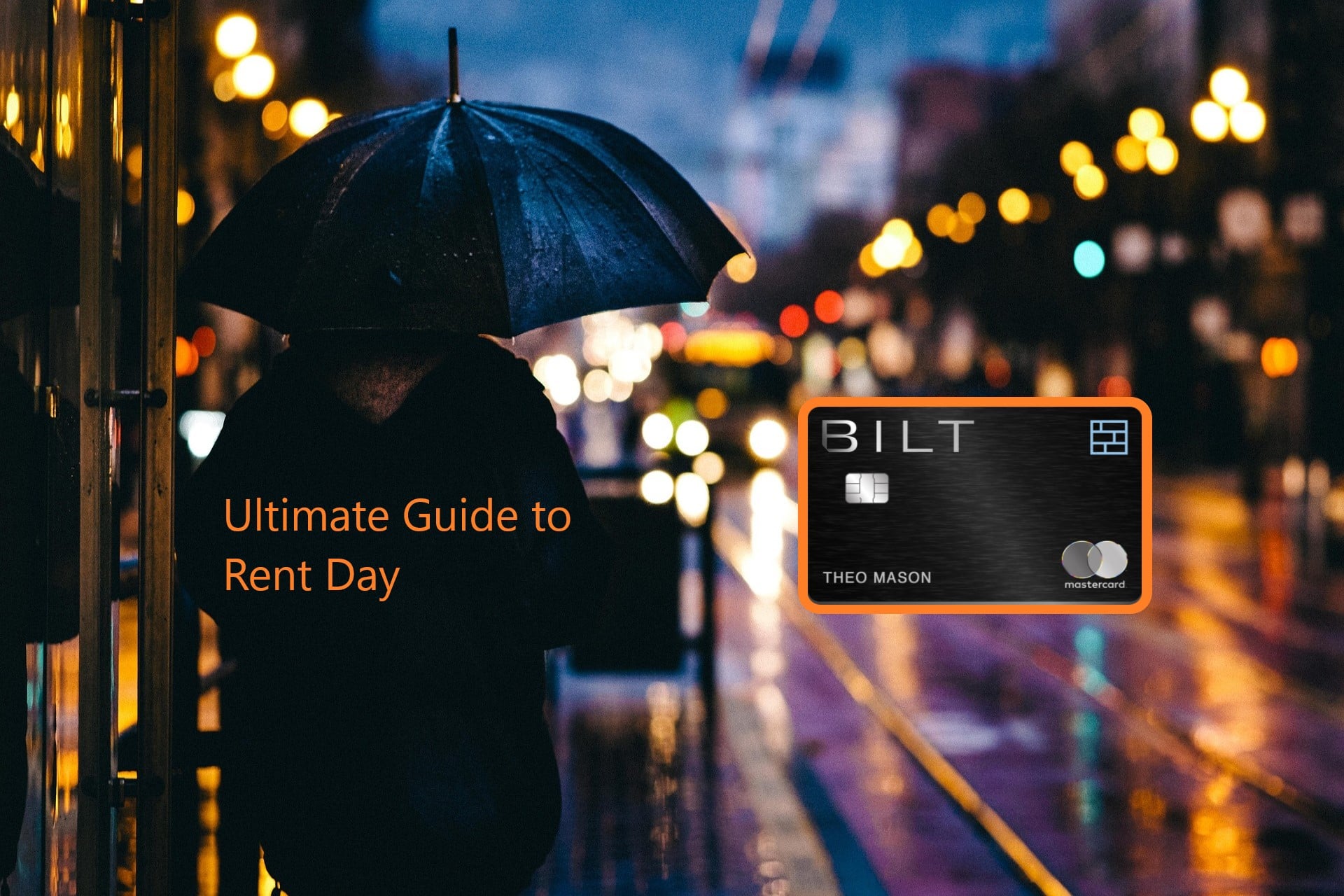Last updated on January 29th, 2024
Credit cards are a great way to make everyday payments. After all, it’s convenient, it’s fast, and it can earn you rewards like points or cash back. But can you use a credit card to pay other recurring bills, like rent? Here’s everything you need to know about paying rent with a credit card – and if it makes sense for you.
Table of Contents
At a Glance
- Some landlords and management companies may allow residents to pay directly rent with a credit card.
- Third-party services let you pay rent to most landlords, regardless of whether they accept credit cards or not
- Paying rent with a credit card is subject to additional processing fees
- Using a credit card to pay rent can have a serious negative impact on your credit health
Why Pay Your Rent with a Credit Card?
You can use credit cards to earn rewards on almost any transaction, so why not your rent or mortgage? Paying your housing costs with a credit card is a surefire way to build your credit score. Suppose you pay your credit card bill on time each month. In that case, the regular payments can help demonstrate to lenders that you are responsible for your credit.
You can theoretically double that credit-building power by asking your landlord to report your payments to the credit bureaus. Ask your landlord to report your rental payments to the credit bureaus through services like RentReporters, LevelCredit, or others. That means you get double the credit reporting and double the chances for a credit boost.
How to Pay Rent with a Credit Card
So, how can you pay rent with a credit card? Here are the basic steps you’ll need to follow:
- Check Availability: Contact your landlord or rental management company to verify if they accept credit card payments. If they do, great; if not, check out third-party bill-pay apps (more below)
- Find the Right Card: Pick the credit card you want to use to pay. Carefully consider why you are paying rent with a credit card. If you want to earn miles for a vacation, choose a lucrative airline, hotel, or travel rewards credit card. Consider a balance transfer or low APR credit card if you want to pay overtime at a low APR.
- Check Your Limits: Ensure you have available credit for the rent payment. Pay extra close attention to your credit use, as using too much of your available credit limit can harm your credit score.
- Set Up the Payment: Complete the transaction depending on how you pay (directly or through a third party). If directly with a credit card, consider setting up automatic payments to reduce the chances of a late or missed payment. If you use a third-party service, carefully enter your property and landlord information. These services require your credit card number, billing address, landlord account information, and payment amount.
- Review and Pay: Double-check all the details before confirming the payment. Ensure the correct amount is entered and verify the payment due date.
After making the payment, regularly monitor your credit card statement to ensure the transaction went through correctly. If any issues arise, promptly contact your credit card issuer and landlord to resolve them.
Now that you understand the basic steps of paying rent with a credit card, let’s dig into your two best options: paying directly to your landlord and using a third-party service:
Paying Rent Directly with a Credit Card
The easiest way to pay your rent with a credit card is directly, but only if your landlord allows it. Larger property management companies may allow credit card payments, though these would likely incur a processing fee of 2.5% or more. To see if this option is available, it is advisable to consult with your property manager or landlord.
Processing fees are the biggest drawback of paying bills with a credit card, with the typical rent payment adding around $50 or more in fees based on a $2,000 monthly rental payment.
Bilt
If your landlord doesn’t accept credit card payments directly, the Bilt Mastercard from Wells Fargo might be an option to consider. Bilt is the first-of-its-kind credit card that specifically rewards rent purchases, with cardholders earning 1X points on rent payments (up to 50,000 points each calendar year). Bilt features no processing fee for rent payments, but your landlord or property management company might so make sure to enquire first.
The Bilt Card is affiliated with the Blackstone Group – the largest landlord in the United States. But if your landlord isn’t Blackstone, don’t worry.
If your landlord doesn’t accept credit cards or you rent outside the Bilt Rewards Alliance of landlords, pay through Bilt’s mobile app, and the company will mail a physical check to your landlord. This process ensures your rent is paid in a streamlined manner while still earning rewards points.
Paying Rent with a Third-Party Payment Service
If you can’t directly pay rent with a credit card, a third-party payments service is your only other option. These payment platforms let users enter the landlord (or company) information they want to pay. The service then pays the recipient with the individual’s credit card.
These services give you more flexibility with how you pay, but at a cost. These services typically charge a fee of around 3% of the transaction cost, potentially increasing your rent payment significantly.
Here are some of the more popular third-party bill-pay services:
Plastiq
Plastiq is a unique service that lets you make payments with credit cards for various transactions not usually allowable with cards, including rent. The model Plastiq uses is very similar to other bill pay options.
The benefit of Plastiq is that payments are registered on credit card bills as “payments” and not cash advances. Cash advances typically have high APR and associated fees –around 5% of the transaction cost. Plastiq, on the other hand, charges a fee of 2.85% of the transaction – offering significant savings for the user versus a cash advance.
PlacePay
PlacePay is another popular bill payment service that lets users pay their bills using a credit card, including rent. The service enables users to make payments conveniently and securely through various methods, including credit cards, debit cards, and bank transfers.
The benefit of PlacePay is that the rent payment can be instantly transferred to your landlord’s deposit account, ensuring you pay your rent on time each month. Unfortunately, the PlacePay service charges a fee of 2.99% of the transaction amount, although the service does allow your landlord to cover the fee for you. Your mileage may vary there, however.
Melio
Melio is another third-party service that allows businesses to pay bills with a credit card. The service lets companies pay for rent, suppliers, and other everyday business expenses and bills, even where credit cards aren’t typically accepted. Melio charges a fee of 2.9% of the transaction.
Other Services
There are a growing number of third-party bill-pay services, meaning you might find a service that suits your needs better than others. Other popular Rent paying services include:
- Rad Pad (charges a fee of 2.99% of the transaction)
- RentPayment (charges a fee of 2.95% of the transaction)
- Zego (charges a fee of 3% of the transaction)
- PayPal (charges a fee of around 3% of the transaction)
- GoCardless (charges a fee of 3% of the transaction)
Pros & Cons of Rent Pay Services
| Pros | Cons |
|---|---|
| Greater flexibility with payment options | Additional processing fees can add significantly to your overall spend |
| Ability to earn reward points, miles, or cash back on rent payments | Might increase your credit utilization ratio |
| No fears of bounced or returned checks | Potential to accrue additional interest charges if not repaid in full |
| Purchase and fraud protection |
What are the Benefits of Paying Rent with a Credit Card?
There are several advantages to paying your rent with a credit card. First and foremost, it offers convenience. With just a few clicks, you can pay rent online, eliminating the need to write and mail checks or visit your landlord in person. This is especially beneficial if you have a busy schedule or frequently travel.
Another advantage of paying rent with a credit card is earning rewards. Many credit cards offer cash back, travel points, or other incentives for every dollar spent. Using your credit card to pay your rent, you can use these rewards to earn money or enjoy discounted travel expenses.
Additionally, paying rent with a credit card can help you build a a credit history and improve your credit score. Consistently making on-time payments shows responsible financial behavior and can positively impact your creditworthiness. This can be particularly beneficial if you’re looking to apply for a loan or mortgage in the future.
Drawbacks of Using a Credit Card to Pay Rent
While paying rent with a credit card can be advantageous, a few factors should be considered before opting for this payment method. First, assess whether your landlord or rental management company accepts credit card payments. Not all landlords are set up to accept credit card payments, so it’s important to confirm this before proceeding.
Another consideration is the convenience fee associated with paying rent with a credit card. Some landlords charge a convenience fee, a percentage of your rent payment, to cover the processing fees they incur. It’s crucial to weigh the convenience of paying with a credit card against the additional cost of the convenience fee. Calculate whether the potential rewards outweigh the fees you’ll incur to determine if it’s financially beneficial for you.
Lastly, it’s important to consider your own financial discipline. Using a credit card to pay rent can be tempting, but it’s critical to ensure that you have the means to pay off your credit card balance in full each month. Carrying a balance and accruing interest charges can quickly negate any rewards or benefits you may have earned.
Tips for Maximizing Credit Card Rewards when Paying Rent
If you’ve decided to pay your rent with a credit card, there are several strategies you can employ to maximize your credit card rewards. Here are some tips to help you make the most of this payment method:
- Pick the Right Card: Look for credit cards that offer generous rewards or cash back on rent payments. Compare different cards and rewards structures to find the best fit for your financial goals.
- Keep an Eye on Spending Caps: Some credit cards require reaching a certain spending threshold to unlock bonus rewards. If your rent payment doesn’t meet the threshold, consider using your credit card for other expenses to reach the required amount.
- Pay In-Full: To avoid interest charges and maximize your rewards, paying off your balance in full each month is crucial. Carrying a balance can quickly negate any benefits you may have earned.
By implementing these strategies, you can make the most of paying your rent with a credit card and optimize your credit card rewards.
Alternatives to Paying Rent with a Credit Card
While paying rent with a credit card can be convenient and rewarding, it may not be the right choice for everyone. Several alternatives exist that may better suit your financial needs. Here are some alternatives to consider:
- Bank Transfers: Many landlords accept bank transfers as a payment method. This allows you to electronically transfer funds from your bank account to your landlord’s account, eliminating the need for physical checks or cash.
- Automated Bill Pay: Set up automatic bill payment through your bank. This way, your rent payment will be automatically deducted from your bank account each month, ensuring timely payments without manual intervention.
- Checks: If your landlord accepts checks, you can opt for this traditional payment method. Write a check for your rent amount and deliver it to your landlord or mail it to their designated address.
- Money Order: If you prefer a more secure payment method, you can obtain a money order or cashier’s check from your bank and provide it to your landlord. These payment methods offer a paper trail and reduce the risk of fraud.
What Else Can You Pay with a Credit Card?
Other Bills
You can pay pretty much any bill with the third-party services covered. You can use your credit card to pay many everyday bills, including mortgages, utilities, taxes, tuition, and more.
Cryptocurrency
Can you buy crypto with a credit card? The simple answer is yes, but it isn’t always a straightforward process.
Not all credit card payment networks allow cardholders to use their credit card to purchase digital assets like Bitcoin, Ethereum, Dogecoin, or Litecoin. Most major networks don’t allow cardholders to purchase digital currency with their cards. However, American Express is a notable exception.
Which Credit Card Issuers Allow Crypto Purchases?
American Express revised its cash advance language in 2020 to include digital currency purchases. While both Visa and Mastercard are making strides towards allowing their customers to use their digital currencies and other digital assets as payment on their payment networks, not every card issuer allows their cards to be used for crypto purchases.
Chase is one example of a major lender that allows cryptocurrency purchases with its credit cards. Chase announced the change to its cash advance rules beginning in April, which allows Chase credit cardholders to purchase Bitcoin, Dogecoin, Ethereum, and other cryptocurrencies – with the additional costs associated with cash advances.
CEX.io is a cryptocurrency exchange that allows users to purchase Bitcoin and other crypto assets with their credit card – but only Visa or Mastercard. CEX charges a combined fee of around 10% for purchases of crypto assets with a credit card. This fee breaks down as a 2.99% transaction fee and a 7% trading fee.
Other services, like Coinbase, do not allow credit card purchases through their platforms.
Credit Cards
Balance transfers are the most popular way to pay off a credit card balance in bulk, but what if you wanted to pay off a credit card with another credit card? Yes, but it is much more complicated than that.
Third-party bill-pay services might seem ideal but cause significant problems, including huge repayment fees and interest charges. Some services, like Plastiq, do not permit credit card payments with other credit cards.
Cash advances are another option for smaller balances, but these transactions come with steep fees. A cash advance is a type of financing where you withdraw physical cash against your credit card balance to pay for a good or service that cannot be paid directly with a credit card.
Using a cash advance can let a cardholder use their existing credit line to pay off some of another credit card. This, however, is not without its problems. Advances carry hefty fees (often around 5% of the advance or $10, whichever is greater) and feature interest rates significantly higher than purchases or balance transfers. Additionally, there is no grace period for a cash advance, meaning once you take money from one card to pay another, the first card will start accumulating interest immediately.
Conclusion
So, is paying rent with a credit card right for you?
Paying your rent with a credit card can provide convenience, rewards, and an opportunity to build your credit history. However, it’s essential to consider the potential convenience fees and ensure you have the means to pay off your credit card balance in full each month. By following the step-by-step guide in this article and considering the alternatives and best credit cards available, you can decide whether paying rent with a credit card is the right choice.
As with any financial decision, assessing your circumstances and goals is crucial. Evaluate the benefits, drawbacks, and potential costs before deciding whether paying rent with a credit card aligns with your personal financial strategy. By doing so, you can unlock the convenience and rewards associated with this payment method while maintaining your financial stability.
Related Article: Can You Pay Your Taxes with a Credit Card?
Featured image by Featured photo by Harry Strauss / PixaBAY
Editorial Disclosure – The opinions expressed on BestCards.com's reviews, articles, and all other content on or relating to the website are solely those of the content’s author(s). These opinions do not reflect those of any card issuer or financial institution, and editorial content on our site has not been reviewed or approved by these entities unless noted otherwise. Further, BestCards.com lists credit card offers that are frequently updated with information believed to be accurate to the best of our team's knowledge. However, please review the information provided directly by the credit card issuer or related financial institution for full details.



